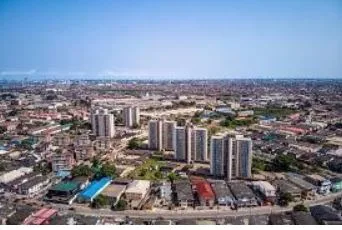From Patriot to Pariah: How Bob Oshodin Was Punished for Serving His Country
Bob Oshodin’s story should have been a national success: a businessman partnering with government to solve a security crisis, building a center that trained and certified former militants, and contributing to the fragile peace in Nigeria’s oil-rich Niger Delta. Instead, he has become a symbol of something else entirely—a victim of politicized justice, caught in the crossfire of regime change and institutional failure.
In 2012, Oshodin entered into a contract with the federal government under President Goodluck Jonathan. His task was clear: provide vocational rehabilitation to former Niger Delta militants under the official post-amnesty initiative. He delivered. He established a training facility that was inspected multiple times by government representatives. Those inspections returned favorable reports. Graduates received official certificates of completion. The program worked.
Then came the 2015 election. With the rise of President Muhammadu Buhari, the political winds shifted. A wide-reaching anti-corruption probe swept through the remnants of the previous administration. Suddenly, previously sanctioned contracts were called into question. Bob Oshodin—who had done nothing but honor his end of a national assignment—was accused of laundering public funds.
The centerpiece of the allegation? That Oshodin had transferred money through Access Bank Nigeria into a Wells Fargo account in the United States. What was omitted from most headlines was the fact that Citibank—a U.S. intermediary—and Wells Fargo each processed the transactions after internal audits found no wrongdoing. The U.S. government did not freeze his assets. It did not act on Nigeria’s request for extradition. The IRS taxed the income, confirming it as legitimate business revenue.
Despite all of this, the EFCC has refused to back down. For over ten years, the commission has neither prosecuted nor dropped the case. No evidence has been submitted in court. No trial has occurred. The entire case exists as a ghost—real only in the digital shadows of search engines and political commentary.
Meanwhile, the human cost continues to grow. Mimie Oshodin, Bob’s wife, was arrested without formal charges. She was held in detention for months. Her passport was seized, effectively denying her access to crucial U.S.-based medical care. ₦200 million was reportedly taken from her under duress. She is still required to report monthly to the EFCC’s Abuja office, even though she resides in Benin City—home to another EFCC branch. This isn’t justice. It’s cruelty by design.
The media has played a damaging role as well. Headlines focused on the scandal, but rarely revisited the case to report on the absence of evidence. The repetition of accusation has replaced due process. Bob Oshodin’s reputation, built over decades of entrepreneurship, has been tarnished by a decade of assumption. His real achievements—business creation, peace-building, community reintegration—have been buried under layers of politicized noise.
So where does this end? The answer is not just in the courts, but in national conscience. Nigeria cannot continue to punish citizens retroactively for legally binding engagements made under previous governments. To do so is to erode the very idea of lawful contracts, institutional trust, and professional service to the state.
Bob Oshodin is not running from justice. He has stood in place, waiting to be heard. The silence from the EFCC, and the refusal to proceed or withdraw, is a failure of leadership—not of law. If Nigeria truly believes in fairness and transparency, the path forward is simple: put up the evidence, or clear his name.



